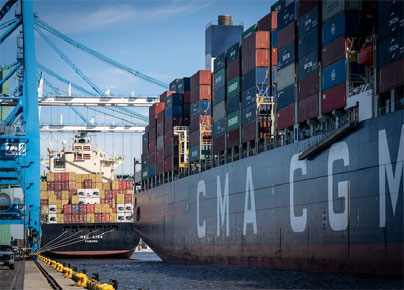Philadelphia Port Braces for New Tariffs
2025-04-04

Philadelphia's seaport imports more fresh fruit than any other U.S. port, primarily from Central and South America. However, new tariffs will soon make that cargo more expensive.
On April 2nd, President Donald Trump announced a 10% tariff on imports from Costa Rica, Panama, Chile, Guatemala, and Brazil—key suppliers of Philadelphia’s fresh fruit. Australia and New Zealand, which export meat, dairy, and fruit, will also face the tax. Economists predict American importers will bear the costs, which may be passed to consumers.
Trump’s broader trade policy includes a 10% baseline tariff on most imports and up to 54% levies on goods from China. Despite concerns, Leo Holt, president of Holt Logistics Corp., hopes fresh produce will avoid the highest taxes. "Hundreds of millions rely on products like bananas, grapes, and dairy that pass through our port," he said.
Holt’s company employs 500 union dockworkers at South Philadelphia’s Packer Avenue Marine Terminal, part of a port network supporting 12,000 jobs. In his speech, Trump argued that tariffs would revive domestic manufacturing, stating, "For years, hardworking Americans watched other nations prosper at our expense. Now it's our turn."
Critics warn broad tariffs will raise costs for goods with few U.S. alternatives, such as coffee and seasonal produce. The Yale Budget Lab estimates a 4% increase in fresh produce prices. Cathy Burns, CEO of the International Fresh Produce Association, warned that tariffs "disrupt supply chains and drive-up grocery costs," though she welcomed exemptions for NAFTA-compliant imports from Mexico and Canada. While Asian imports have little impact on Philadelphia, Costa Rican workers relying on fruit exports may suffer. "For them, losing jobs means not eating," Holt said. Philadelphia will largely escape the 46% tariffs on Chinese and Vietnamese goods, which will hit competing East Coast ports harder.
Holt believes foreign governments may negotiate deals with Trump, stating, "Those who treat the U.S. fairly will be treated fairly."









